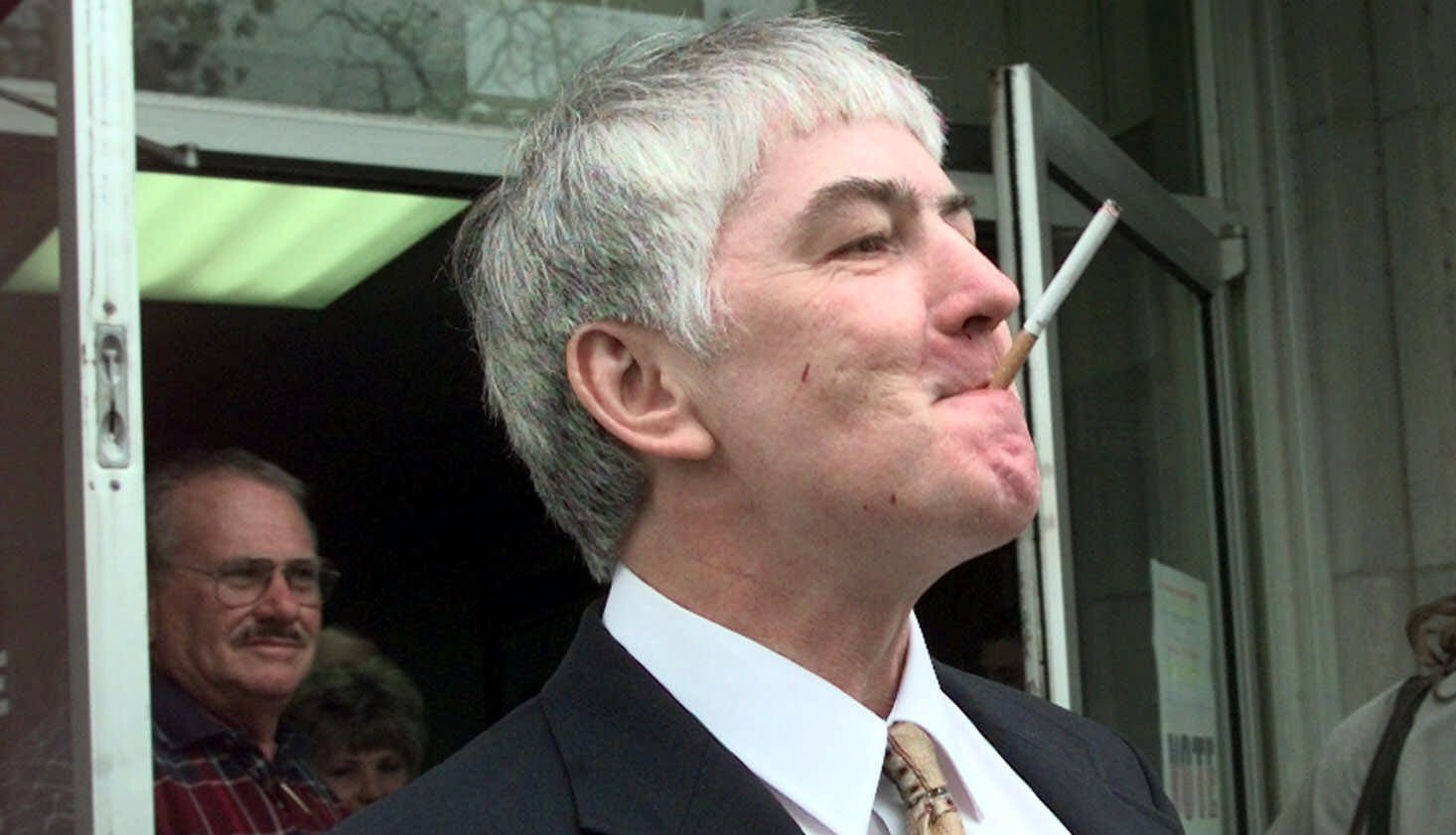Create a free profile to get unlimited access to exclusive videos, breaking news, sweepstakes, and more!
What Happened To Ron Williamson After He Was Declared An 'Innocent Man?'
"I hope I go to neither heaven nor hell... I don't want anybody judging me again," Ron Williamson, subject of Netflix's docu-series "Innocent Man," said on his deathbed after receiving a fatal diagnosis.

Ronald "Ron" Keith Williamson's life was mired in tragedy: from an early promising career in baseball cut short by injuries and mental illness to his wrongful conviction for the murder of Debra Sue Carter. The events which led to his murder conviction and eventual exoneration are depicted in Netflix's new true crime docu-series "The Innocent Man," based on the John Grisham book of the same name. And although Williamson's name was cleared and he was ultimately released from prison, he didn't have much time to enjoy his freedom.
Williamson's conviction in 1988 for the rape and murder of Carter, a popular 21-year-old cocktail waitress, led to him landing a spot on death row. Although almost no evidence connected Williamson to the crime, police used what Grisham described as manipulative techniques that took advantage of Williamson's mental illness to coerce an almost unintelligible confession from him. Similarly, police used deeply unreliable hair tests and handwriting analysis as evidence to connect Williamson to the crime scene. It remains unclear why, exactly, Williamson's psychological and cognitive impairments were not further investigated at trial.
Despite the lack of concrete evidence, it would take the Innocence Project more than a decade to finally extricate Williamson from death row. According to its website, it wasn't until 1998 that courts agreed to DNA testing. The test results would prove once and for all that it was not Williamson at the scene, but instead Glen Dale Gore, the last person seen with Carter that night.
In April 1999, after 11 years in prison, Williamson was finally set free. But what happened next for the former baseball player?
The first thing Williamson did after being freed was rush outside and light a cigarette. When approached by reporters, it remains unclear how cognizant Williamson, who had struggled with mental health for years, was of the gravity of his situation.
"I feel like my feet are killing me," was his response when asked how he felt about the court's decision.
His family then drove him to a barbeque restaurant where he scarfed down ribs, despite having lost most of his teeth in prison.
Williamson was reluctant to speak of his time locked up and only briefly discussed his various suicide attempts while incarcerated, pointing to self-inflicted scars on his wrists. He often changed the subject when asked questions about his confinement.
One of Williamson's first stops after his exoneration was to Yankee Stadium in New York City, according to the New York Times. There, he was awestruck by the pristine fields.
"I just got a taste of how much fun they were having up here," he said. "All I ever wanted to do was play baseball. It's the only fun I ever had."
Shortly after that, a German television station paid for a trip to Disney World in exchange for access to Williamson's story.
Williamson would never find total solace from his plethora of mental health issues, according to his sister, Renee Simmons of Allen, Texas. His family attempted to keep him on his medication, but struggled. He continued to drink and became increasingly paranoid as the alcohol mixed with his medicine. He believed the police would come after him again and he carried a butcher's knife around the neighborhood. He survived on disability payments from the Social Security Administration. He was in and out of mental health facilities once again, briefly enjoying periods of sobriety but relapsing shortly thereafter.
Williamson did participate in a one-mile march in Texas in the hopes of having the sentences of death row inmates commuted. He appeared confused at the event, but his presence was greatly appreciated by activists.
Williamson also took legal action against Pontotoc County district attorneys for his years wrongfully lost in prison. He had demanded $100 million in damages, but the details of those court cases, including the amount he settled for, remains undisclosed.
In 2004, only five years after he was freed, Williamson passed away from cirrhosis of the liver. He had only learned of the condition six weeks before his death, but had been suffering from severe stomach pains before that, according to his sister, Annette Hudson.
Williamson seemed to have accepted his fate in his final moments
"He was completely at peace with the lord," said a friend of Williamson's at the time. "He had no fear of death. He just wanted to get it over with."
A photographer named Taryn Simon, who used Williamson as a subject toward the end of his life, asked Williamson to summarize his final thoughts.
"I hope I go to neither heaven nor hell. I wish that at the time of my death that I could go to sleep and never wake up and never have a bad dream... I don't want to go through the Judgement. I don't want anybody judging me again."
[Photo: Ron Williamson enjoys his first cigarrette as a free man, Thursday, April 15, 1999 on the steps of the county courthouse in Ada, Okla. after serving 12 years in prison. Credit: AP Photo/J. Pat Carter]
























